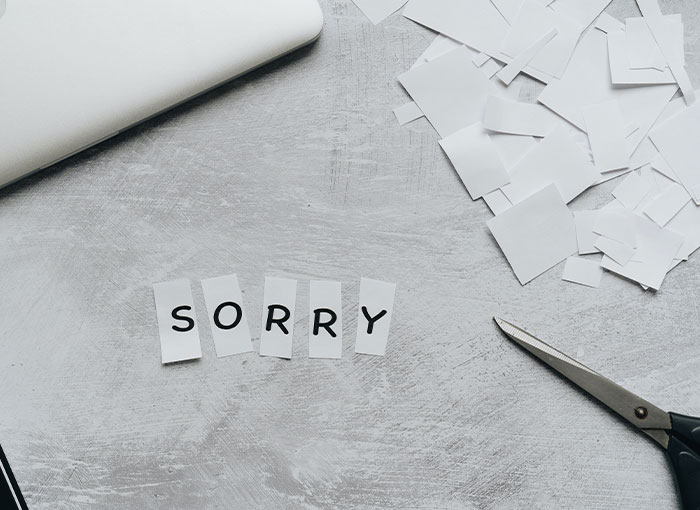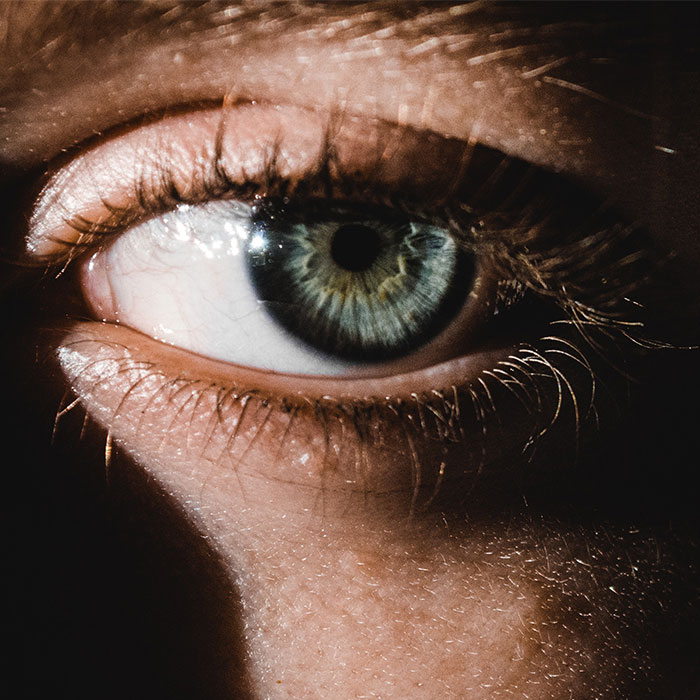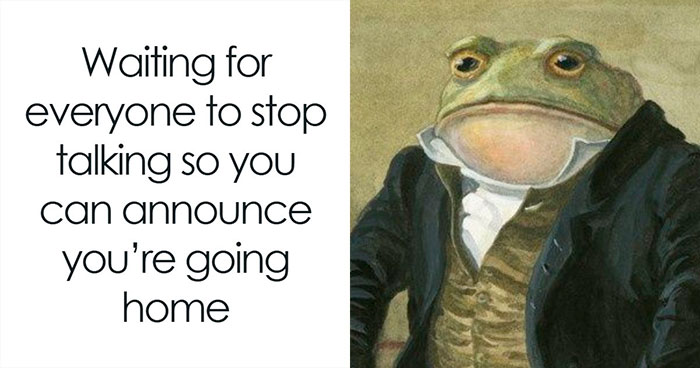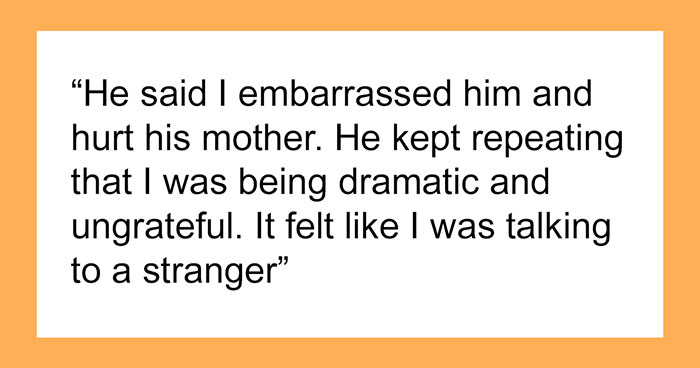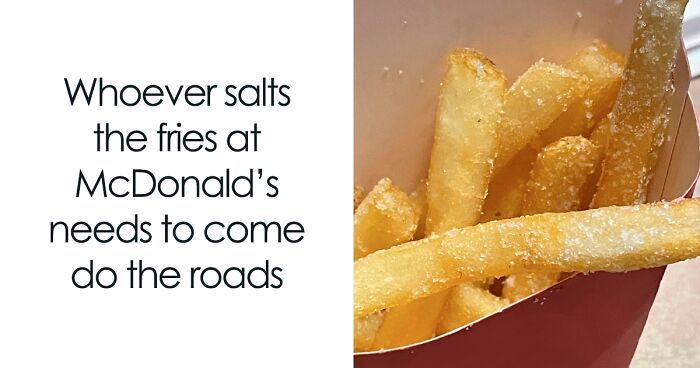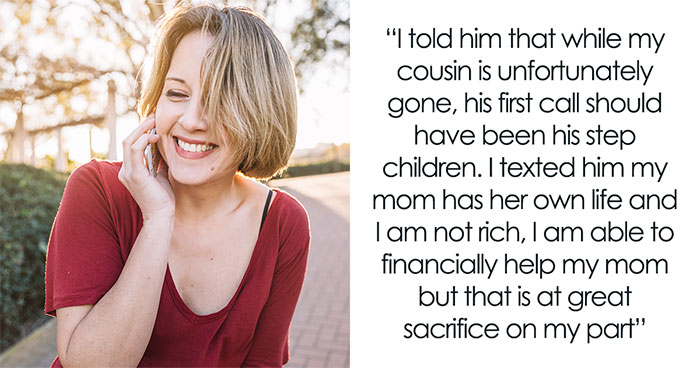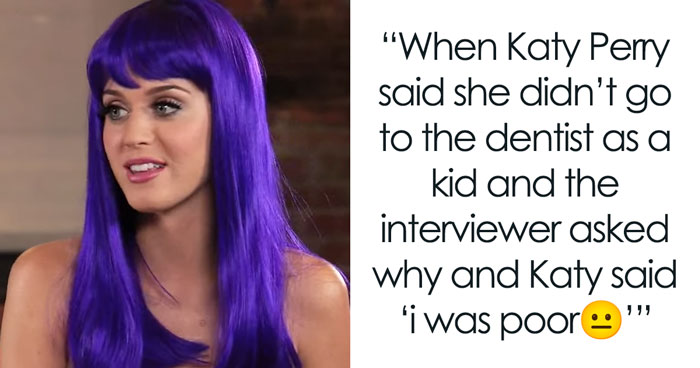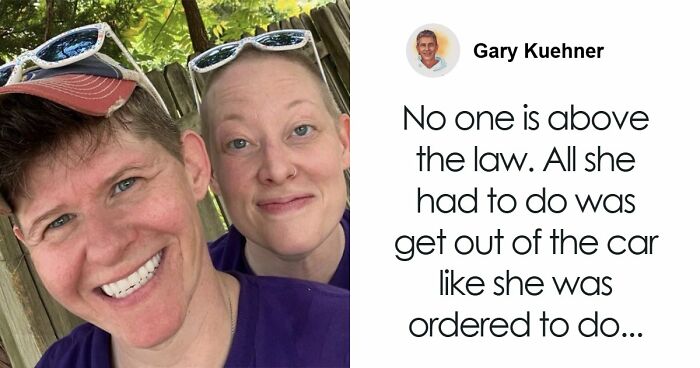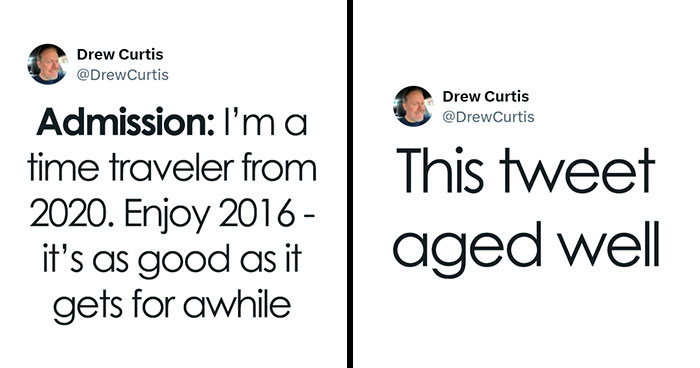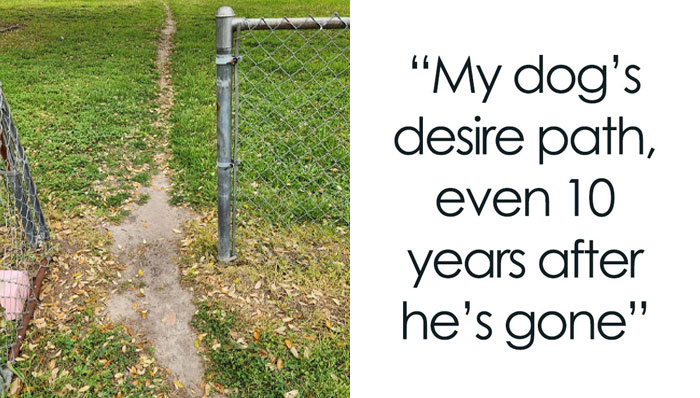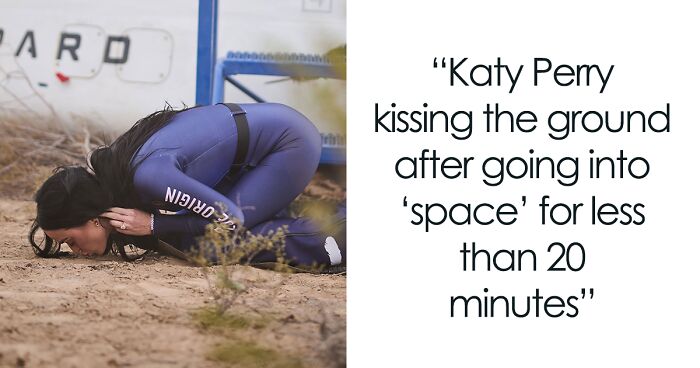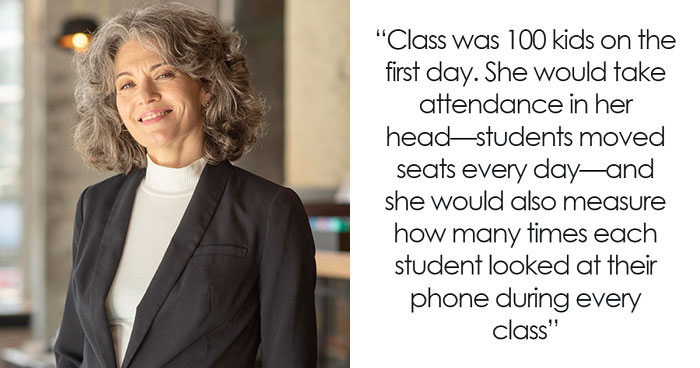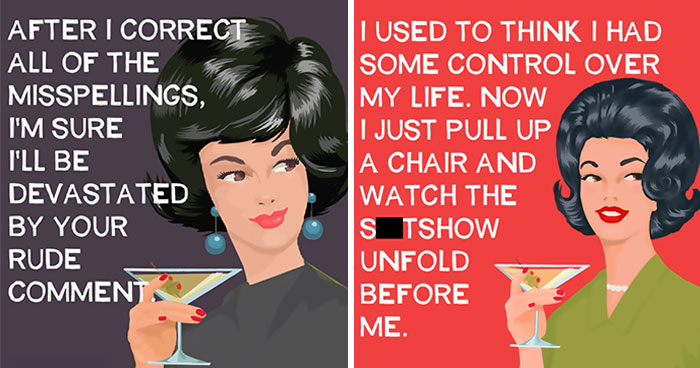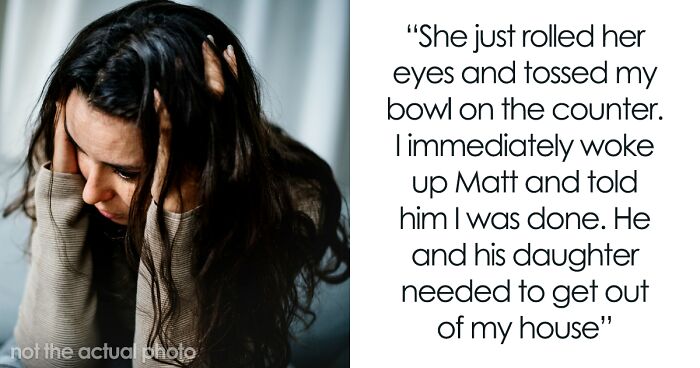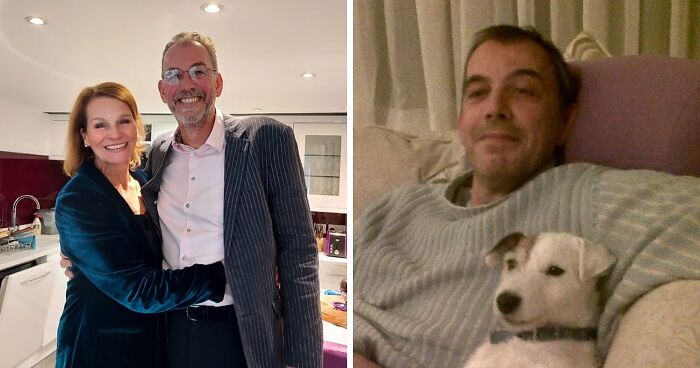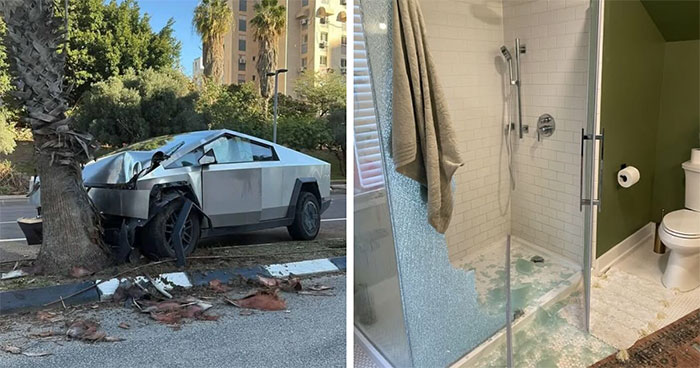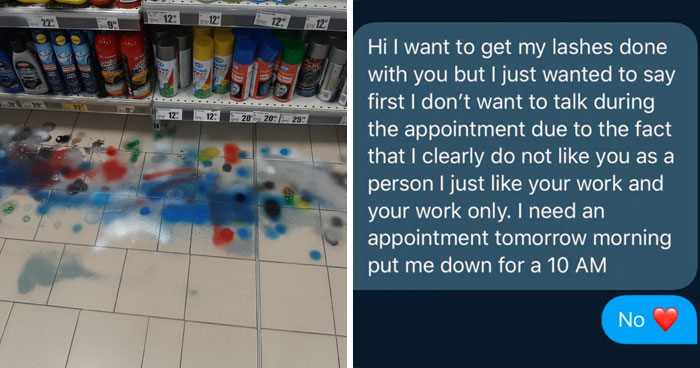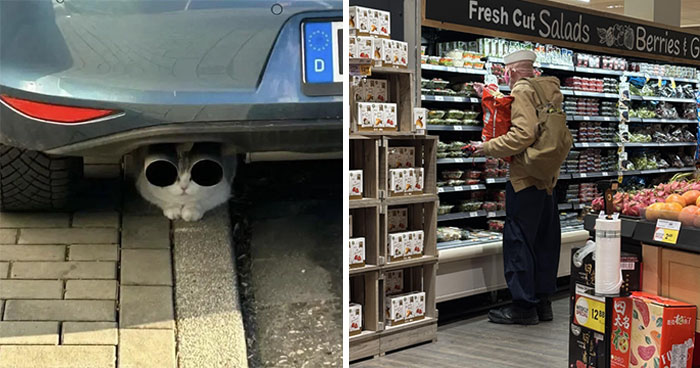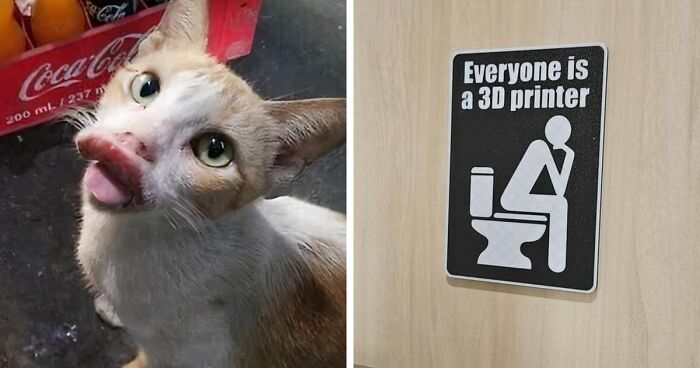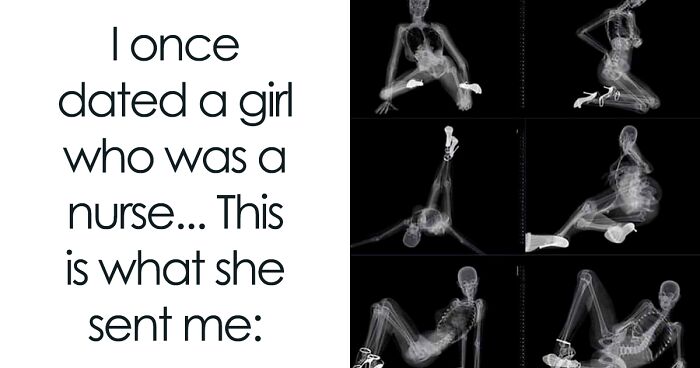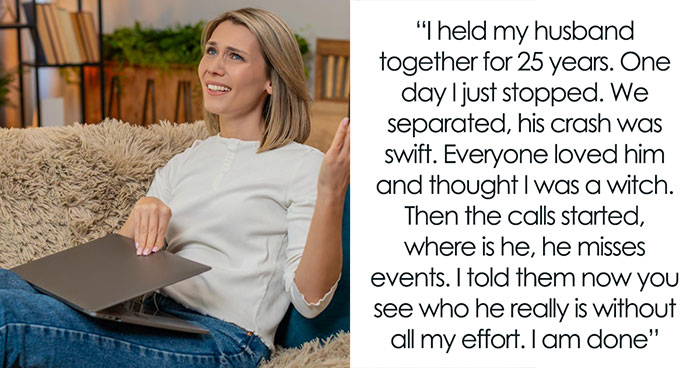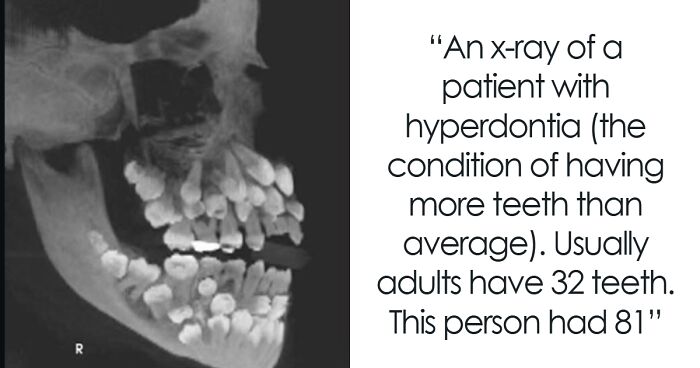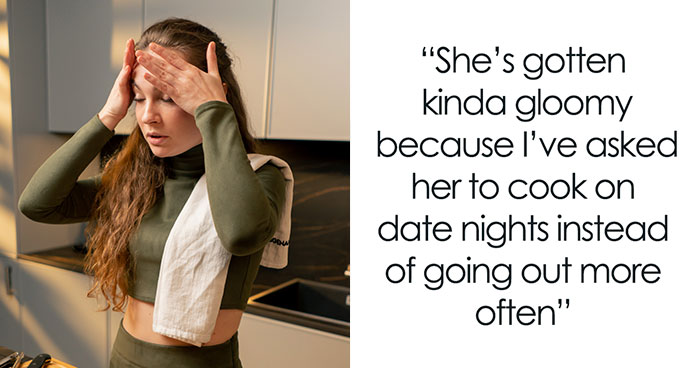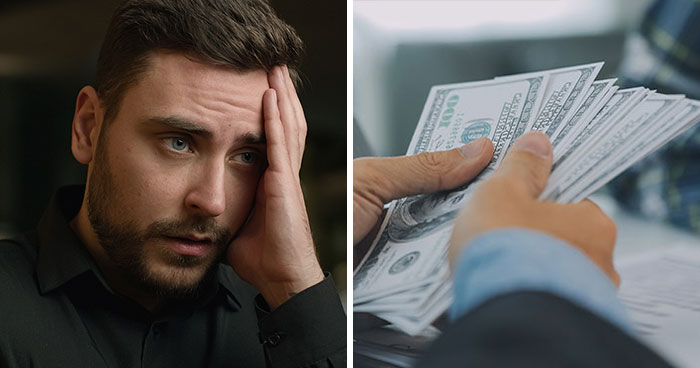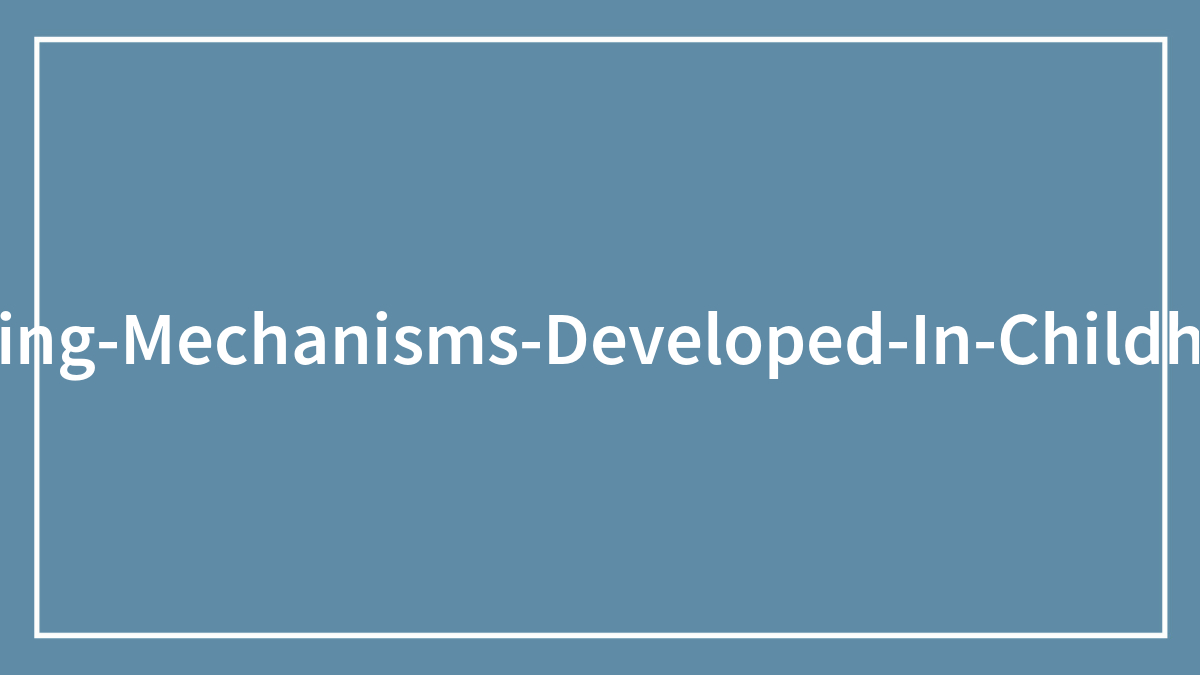
People Share 40 Habits They Have Had Since They Were Kids That They Now Realize Have A Much Deeper Meaning
Interview With AuthorSome of the habits that people currently have might be childhood coping mechanisms that they picked up as ways to survive. They might have lived in a toxic family environment and faced neglect or abuse. They might have had to deal with constant fear, stress, and anxiety. And it only occurred to them way later, when they grew up, that the habits they grew to rely upon aren’t ‘normal’ at all.
Reddit users revealed the childhood coping methods that they unknowingly developed in an incredibly honest and impactful thread. They wrote about being hyper-aware of people’s microexpressions, shutting down their emotions, and creating imaginative scenarios to make their situations more tolerable. Scroll down for the most powerful things you will likely read today.
Bored Panda had a very open conversation about hardship, mental health, and childhood coping mechanisms with the author of the thread, redditor u/GreggOfChaoticOrder. They were very candid about their own struggles, the massive impact their r/AskReddit thread had, as well as their thoughts on dealing with trauma. Their hope is that by shedding light on these topics, others can know that they’re not alone in their struggles and it helps make the world a better place.
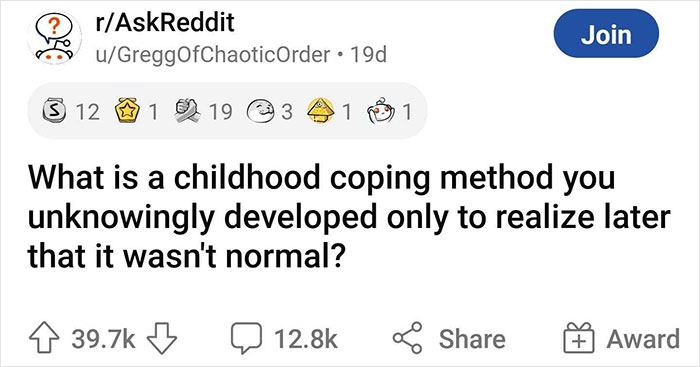
This post may include affiliate links.
 I look for signs, such as micro-expressions, about what kind of mood the other one is in. My therapist told me not all people do this, and I do it a lot. He also told me I developed it because I was always on the lookout because of my often angry, drunken stepdad.
I look for signs, such as micro-expressions, about what kind of mood the other one is in. My therapist told me not all people do this, and I do it a lot. He also told me I developed it because I was always on the lookout because of my often angry, drunken stepdad.
Redditor u/GreggOfChaoticOrder, the author of the viral thread, was incredibly open about what made them ask the question on r/AskReddit. “I was inspired to make that post because I was at a low point. I was so depressed and I just wanted to feel better,” they told Bored Panda.
“I had been commenting encouragement on other people's posts in r/bipolar, telling them things I'd want to hear, but it didn't feel like I was doing enough. After some soul searching and self-reflection I just kinda realized that many of the things I do are actually just coping mechanisms. So I decided to make a post about it and reply to whoever commented. Which was easy… for the first hour or two.” The thread quickly went viral, mainly because of how supportive the redditor was of everyone. But the author was quickly overwhelmed by the massive response.
“I couldn't reply to everyone at a certain point. I'd be getting 100-200 notifications every thirty minutes for a few hours at a time. I think it really took off because of all the work I did at the beginning. I tried encouraging people and letting them know it was a safe place. A place you could just scream into the void and find others there doing the same thing. A place you could even find people you can relate to. I never expected it to take off at all. I was ready for 20 or so comments and maybe as many upvotes,” the redditor told us that they were shocked that their thread then spread to YouTube, TikTok, and the media.
 I can cut people out of my life and stop caring about people at the snap of my fingers, and I do it far too often to people who sometimes may not deserve it to keep myself safe.
I can cut people out of my life and stop caring about people at the snap of my fingers, and I do it far too often to people who sometimes may not deserve it to keep myself safe.
This is purely to protect your heart and your emotional well-being. It's almost better to slowly form friendships and see where it ends up and not get too emotionally attached too quickly.
The author, u/GreggOfChaoticOrder, said that it felt good to have helped people know that they aren’t alone.
Bored Panda wanted to get the author’s opinion on whether hardships always lead to resilience and greater emotional toughness. They told us that, in their opinion, it depends on the situation and the individual.
“The hardships everyone has endured can sometimes make them stronger. I personally believe that while it does make some stronger it can be absolutely devastating to others. For example, two people subjected to the same emotional traumas can develop differently. For one it can make them stronger and more resilient against future traumas. For the other person, it can make them weaker to future traumas and more accepting of said future traumas,” they said.
“Everyone is built differently. How someone deals with trauma can't be put in black and white terms. How they deal and cope is a spectrum. I myself feel like my traumas have made me weaker in some areas, yet stronger in others.”
 Assuming people are mad at me based on their vocal tone.
Assuming people are mad at me based on their vocal tone.
 Apparently, I do something called 'disassociating' where I get so deep in thought that I don’t hear anything else around me. It drives my wife nuts.
Apparently, I do something called 'disassociating' where I get so deep in thought that I don’t hear anything else around me. It drives my wife nuts.
Dissociation is a disconnection between a person's thoughts, memories, feelings, actions or sense of who he or she is. This is a normal process that everyone has experienced. Unless you developed this deep concentration to shut out an unpleasant environment, you have a rare gift. My ex and I had a similar problem because we both had hearing loss, so we had to learn to call each other by name and wait for an answer before speaking. Hope you guys find a solution.
What’s more, the incredibly supportive redditor shared something that they think everybody should hear. “You are not alone. Many have experienced situations similar to you, and many will experience those situations too. You may be too harsh on yourself, or think you are not enough. Yet you are here and that means you want to do better,” they said.
“You have even a small hope that it will be better. Whenever the lows start coming in and beating you down remember that at least you tried your best that day because that is all you can ask of yourself.”
Psychologist Lee Chambers also believes that not everyone reacts to hardships the same way. Some might get stronger because of them, others become weaker. However, we all have the choice of embracing what has happened to us and growing as individuals.
"Post-traumatic growth isn't always simple to explain or utilize, but often the adversity we face can create a precedent for what we can overcome, help us to see what we need to be grateful for, and give us an understanding of the support we do have. A big part of opening the door to grow from our struggles is finding acceptance and taking ownership over what you can control and finding healthy ways to express the negative emotion that comes with challenges that test us," the mental health expert told Bored Panda during an earlier interview.
 My parents were emotionally and often physically neglectful and cold. I was expected to stay out of the way and raise myself within the household. No mealtimes, bedtimes, bath times, nothing. The attention in the house was always negative. We lived way out in the country, too, so there were no playmates in the neighborhood — and my only sibling was 10 years older and of the opposite sex. I had this weird mental game from a young age — I must have gotten it from a book somewhere — where I would pretend I was in an orphanage (one of those old-fashioned ones, kinda like from Annie). The school bus dropped me off there. Then the evening was regimented. We lined up for dinner, sat and did homework, had a church-type service, and then were given baths and put to bed. I would pretend that I was one of many children doing these things. I would lie in bed and imagine myself lying in a row of identical twin beds.
My parents were emotionally and often physically neglectful and cold. I was expected to stay out of the way and raise myself within the household. No mealtimes, bedtimes, bath times, nothing. The attention in the house was always negative. We lived way out in the country, too, so there were no playmates in the neighborhood — and my only sibling was 10 years older and of the opposite sex. I had this weird mental game from a young age — I must have gotten it from a book somewhere — where I would pretend I was in an orphanage (one of those old-fashioned ones, kinda like from Annie). The school bus dropped me off there. Then the evening was regimented. We lined up for dinner, sat and did homework, had a church-type service, and then were given baths and put to bed. I would pretend that I was one of many children doing these things. I would lie in bed and imagine myself lying in a row of identical twin beds.
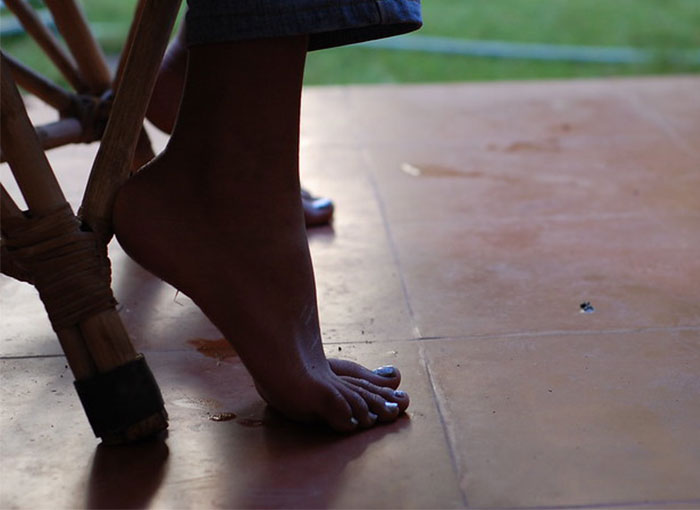 I don't know if it was a coping mechanism so much as a survival tactic. I walk on the balls/toes of my feet all the time. If I'm barefooted, my heels never touch the ground unless I'm standing still. Quietness was the objective.
I don't know if it was a coping mechanism so much as a survival tactic. I walk on the balls/toes of my feet all the time. If I'm barefooted, my heels never touch the ground unless I'm standing still. Quietness was the objective.
I talk to myself, like full blown heart felt conversations. I'd keep things to myself because I would get in trouble for saying the wrong thing. I lie because people couldn't know certain things. I'd day dream because it was better then reality. I observed the room, their gestures to know if it's safe to interact. I don't say things about myself because I can't trust easily.
"As human beings, we have a desire for certainty and routine that keeps us feeling safe and able to plan what lies ahead in an organized manner. When unpredictable situations or accidents impact us, it can be traumatic, and we will likely feel a sense of disappointment, frustration, and loss," psychologist Lee said.
"It is important however that we embrace the fact that the world can be unpredictable and uncertain, and become more tolerant of this being a reality. Understanding that things are sometimes out of our control helps us to accept that not everything goes to plan, and accept when things happen to us that are negative. This acceptance allows us to embrace the change and difference, and manage our expectations so we can become more resilient to the ups and downs that all our lives lead."
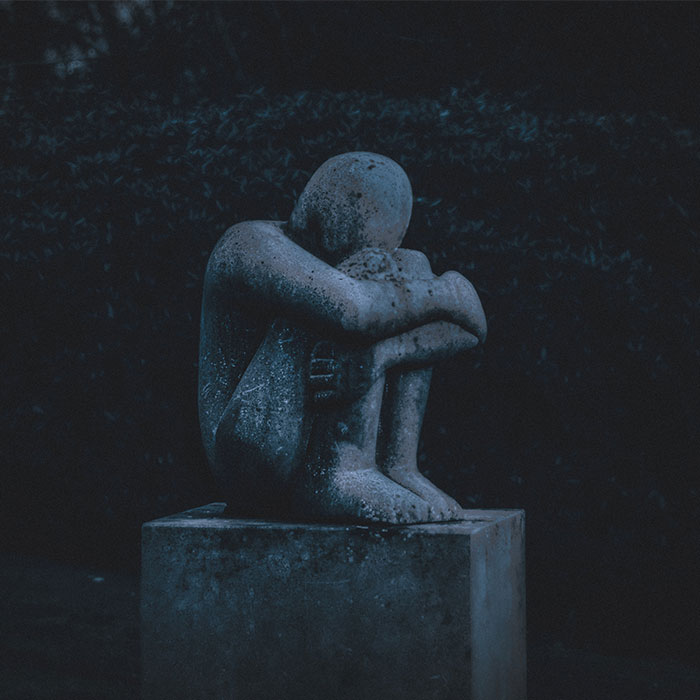 Shutting down emotional responses and forcing myself to 'not care' about any perceived loss. Apparently, this made it pretty annoying to discipline me because I would suddenly stop caring about anything that was threatened to be taken away. Nobody really taught me how to properly cope with loss when it started happening, and I guess my response was emotional repression.
Shutting down emotional responses and forcing myself to 'not care' about any perceived loss. Apparently, this made it pretty annoying to discipline me because I would suddenly stop caring about anything that was threatened to be taken away. Nobody really taught me how to properly cope with loss when it started happening, and I guess my response was emotional repression.
Over apologizing and always questioning if I come off annoying, mean, or disrespectful. Having little to no self esteem. And self neglect.
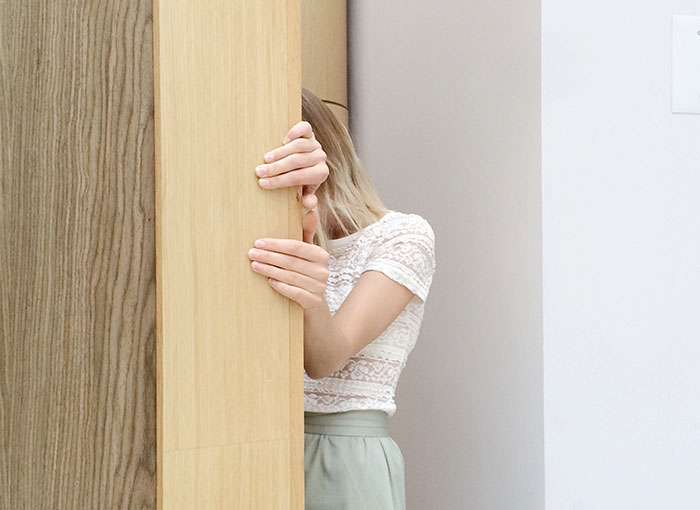 I learned to lie rather convincingly. I was petrified of getting in trouble for the smallest things that I learned to hide quite a bit. I had such high anxiety as a kid.
I learned to lie rather convincingly. I was petrified of getting in trouble for the smallest things that I learned to hide quite a bit. I had such high anxiety as a kid.
I do this to sometimes learned how when i was young n would get screamed at over the SMALLEST mistakes/screw ups. That also caused my anxitey of making mistakes/messing up
The psychologist shared that he himself had to learn to walk again. There were certain things that helped him with his struggle.
"Using journaling and talking about how I felt played a significant part in my recovery when I had to learn to walk again, and gave me the space to grow to become mentally stronger as a result. It is also important to reflect on all the hurdles you've overcome, so you can see what skills and lessons you've learned to apply in the future, and adversity often helps us to see what really matters, and gets us closer to knowing our values and purpose."
 Not doing anything till the last minute so I feel pressured to do it — and when I finish doing it, I feel useful.
Not doing anything till the last minute so I feel pressured to do it — and when I finish doing it, I feel useful.
☝️ - how to tell if you have ADHD ( takes one to know one)
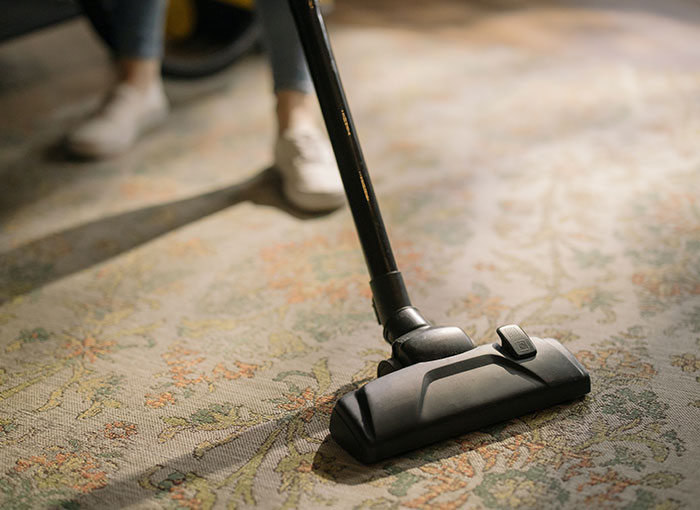 My house is spotless. Everyone is surprised my house is so clean when I have three kids. It's totally a coping mechanism. If I'm upset or stressed, I clean, and with a baby, I'm stressed a lot.
This behavior comes from my dad throwing epic fits if the house wasn't clean and tidy. He would yell that he has four daughters, so why aren't things clean? I thought if the house was clean, it was one less thing to be yelled at about.
I'm slowly learning that it's OK to leave dishes in the sink or have an unmade bed. A mess still makes me extremely anxious, but I'm doing my best not to pass it on to my kids.
My house is spotless. Everyone is surprised my house is so clean when I have three kids. It's totally a coping mechanism. If I'm upset or stressed, I clean, and with a baby, I'm stressed a lot.
This behavior comes from my dad throwing epic fits if the house wasn't clean and tidy. He would yell that he has four daughters, so why aren't things clean? I thought if the house was clean, it was one less thing to be yelled at about.
I'm slowly learning that it's OK to leave dishes in the sink or have an unmade bed. A mess still makes me extremely anxious, but I'm doing my best not to pass it on to my kids.
Your dad thought his daughters were born with brooms and vaccuums in their hands, because women? I'm sorry you were treated that way, OP.
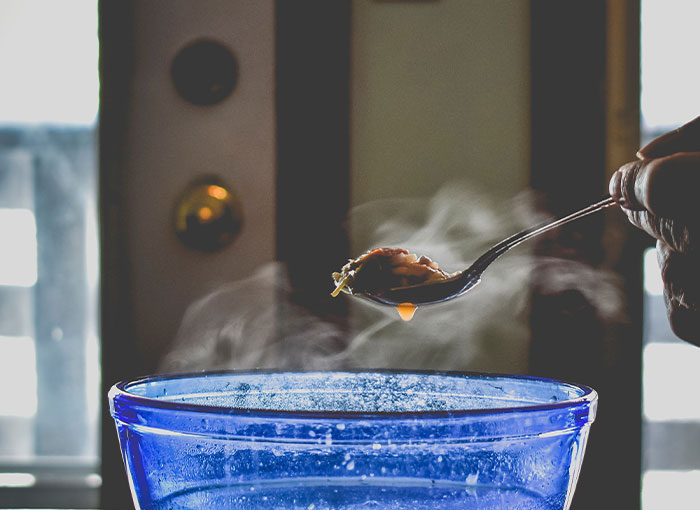 Eating too fast. I remember noticing this even as a child still. I was always done first. And I never out grew it. Neglect and abandonment issues.
Eating too fast. I remember noticing this even as a child still. I was always done first. And I never out grew it. Neglect and abandonment issues.
I learned at an early age, if I didn't eat my food quickly, my younger sister would pinch it. She was never repremanded for it, but it didn't go both ways.
Meanwhile, childhood independence expert Lenore Skenazy explained to Bored Panda why there are so many ‘helicopter’ parents who are overprotective, overbearing, and anxious to let their kids have freedom.
She told us that it’s a result of “our catastrophizing culture” which has scared some parents senseless. By controlling kids to make them safe, some parents force them to live in anxiety.
“The result is not safety, it’s anxiety—kids who absorbed the message that everything is too much for them to handle. When you’re anxious, a simple slip-up doesn’t seem so simple. It seems huge—even life-threatening. How can you avoid those awful threats? That part is simple. You avoid doing anything,” she said.
 Always being okay having your decisions overridden by others and believing they know best. Examples: For birthdays, we’d get to pick a restaurant to eat at. I’d pick a place and usually my sister would complain and my parents would override. Being asked what I’d want for Christmas and being told 'No, you don’t' when you tell them what you want. I was super into astronomy growing up, so when I asked for a telescope, I was told more than once I didn’t want it. So I started to believe I didn’t want one.
Always being okay having your decisions overridden by others and believing they know best. Examples: For birthdays, we’d get to pick a restaurant to eat at. I’d pick a place and usually my sister would complain and my parents would override. Being asked what I’d want for Christmas and being told 'No, you don’t' when you tell them what you want. I was super into astronomy growing up, so when I asked for a telescope, I was told more than once I didn’t want it. So I started to believe I didn’t want one.
I feel this. My family has the tendency to kind of take my opinion into consideration but they never do anything with it.
Self depreciating jokes. If I make fun of myself first it wont hurt as bad when someone else makes fun of me.
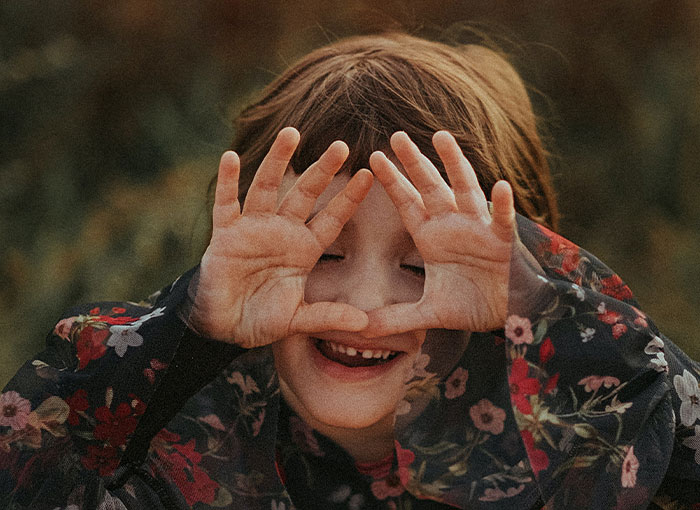 Constantly trying to preempt or diffuse situations. I'm always checking the mood of the room. I'm pretending to laugh to lighten up my parents interactions.
Constantly trying to preempt or diffuse situations. I'm always checking the mood of the room. I'm pretending to laugh to lighten up my parents interactions.
Would go down to get a glass of water to remind them "I'm here and listening" but that made them angry at me for "interrupting their argument."
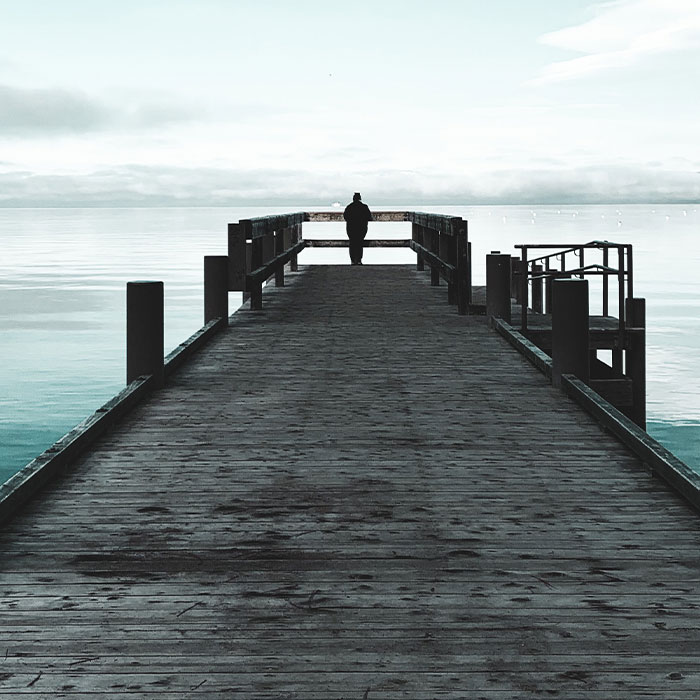 Or shutting down because you have to work out the 'perfect response' in real-time. And no, screaming at me for being quiet will not make this process go any faster or help to resolve the mind-numbing panic that triggered it in the first place.
Or shutting down because you have to work out the 'perfect response' in real-time. And no, screaming at me for being quiet will not make this process go any faster or help to resolve the mind-numbing panic that triggered it in the first place.
I had an ex who admitted to purposely pressing buttons he thought would make me angry to get a response out of me, because this (shutting down) is my response to being overwhelmed/in confrontational situations.
 I do this, too — and I terrified co-workers when I materialized behind them like a ghost at the copy machine or café counter. They called me 'The Ghost,' and I laughed along, but kept to myself that I also knew where the exits were and what was between them and myself at any given moment.
Both of my parents had terrible tempers and three out of my four grandparents were abusive (of every kind you could name) people. You are absolutely right to call it a survival tactic.
I do this, too — and I terrified co-workers when I materialized behind them like a ghost at the copy machine or café counter. They called me 'The Ghost,' and I laughed along, but kept to myself that I also knew where the exits were and what was between them and myself at any given moment.
Both of my parents had terrible tempers and three out of my four grandparents were abusive (of every kind you could name) people. You are absolutely right to call it a survival tactic.
Daydreaming for me. Fantasizing with being loved, cared for, and finding the greatest everlasting unconditional love. This has f**ked me up when attempting relationships as an adult. Having this conundrum today. Wondering whether this is good, problematic, achievable or even realistic, considering my experience and how I see people relate sentimentally to each other around me. Holding on to it or throwing it away for... what? I don't know what I'd want instead.
It's funny, I used to write a lot and one of the characters I used to talk to as an imaginary friend to feel safer/less lonely was a long haired metal head named Rick. My fiancé is a long-haired metal-head (who is also a huge geek for extra credit) named Ricky.
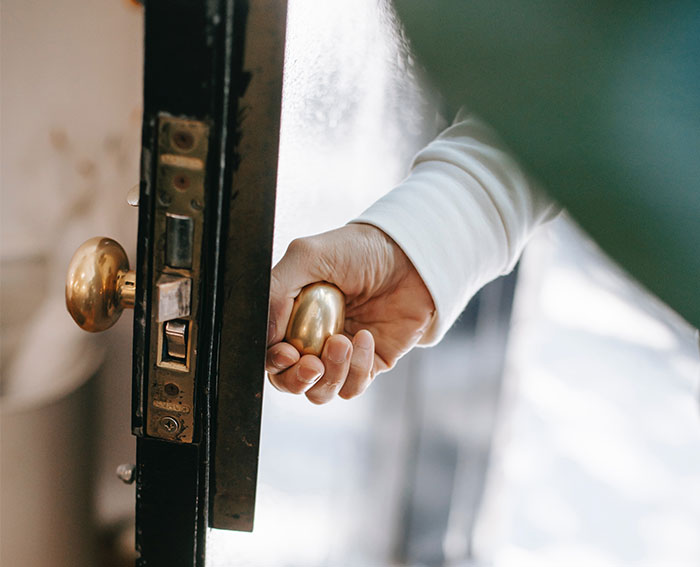 I keep track of where people are in the house. Since you can usually distinguish who is walking by how they sound, you can easily tell where they are. I still do it to this day even when it isn't necessary.
The sound of my mom or dad walking down the stairs always made my blood pressure spike. It was my only warning that they might open my door because they were really bad about not knocking and that meant they were pissed or wanted something. Unfortunately, they could also be walking downstairs for laundry or something else. So I would get worked up for no reason.
I keep track of where people are in the house. Since you can usually distinguish who is walking by how they sound, you can easily tell where they are. I still do it to this day even when it isn't necessary.
The sound of my mom or dad walking down the stairs always made my blood pressure spike. It was my only warning that they might open my door because they were really bad about not knocking and that meant they were pissed or wanted something. Unfortunately, they could also be walking downstairs for laundry or something else. So I would get worked up for no reason.
I did this ALL THE TIME when I was a kid. I still kind of do it but the need isn't there as much.
 I just found out I have a binge eating disorder. I eat in secret sometimes and overeat. It comes from my childhood and not knowing where my next meal would come from.
I just found out I have a binge eating disorder. I eat in secret sometimes and overeat. It comes from my childhood and not knowing where my next meal would come from.
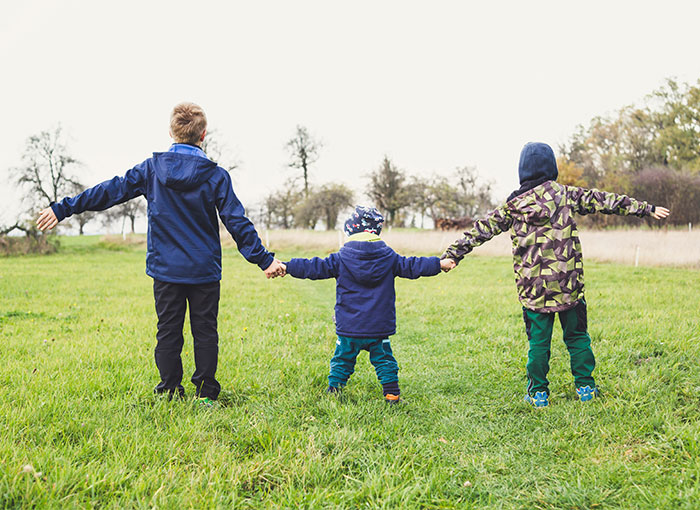 Sometimes I wonder if I'm indecisive for similar reasons. Mine isn't anything malicious. Just being the youngest of three, your opinions generally fall in last for a long time. I became very easy-going/go with the flow, but now I do this thing where I'll be like, 'sure whatever' — and stifle my own desires for others.
Sometimes I wonder if I'm indecisive for similar reasons. Mine isn't anything malicious. Just being the youngest of three, your opinions generally fall in last for a long time. I became very easy-going/go with the flow, but now I do this thing where I'll be like, 'sure whatever' — and stifle my own desires for others.
This. Gone through my whole life like it, am 24 now. When I say I'm not all here, I'm REALLY not all here. I'm not anchored, I'm constantly slipping into my head in crazy adventures with consistent characters, settings, universes, and themes. It's like constantly slipping out of reality and into a trippy TV show. I guess it's kinda nice sometimes, but it gets in the way of school, work, and EVERYTHING I try to do.
Story of my life. Or rather, the story of my characters' lives. I'm the one who's not real.
 Making my voice as monotone as possible to prevent people (my parents) from picking up on any tiny hint of emotion. My parents would lose it if I had 'a tone' or sounded upset in any way. It's taken years and years of practice to regain some emotion in my voice again.
Making my voice as monotone as possible to prevent people (my parents) from picking up on any tiny hint of emotion. My parents would lose it if I had 'a tone' or sounded upset in any way. It's taken years and years of practice to regain some emotion in my voice again.
The "Watch Your Tone With Me" speech! Half my childhood right there.
 Having three or four different responses ready for every conversation in advance just to prepare for what might come. My therapist told me this isn’t as normal as I thought it was and apparently other people don’t prepare this much for regular, everyday conversations.
Having three or four different responses ready for every conversation in advance just to prepare for what might come. My therapist told me this isn’t as normal as I thought it was and apparently other people don’t prepare this much for regular, everyday conversations.
 Trying to think/mentally prepare myself for every possible horrible thing that could happen to me, so that if it did, I wouldn’t be blindsided. It didn’t work. I want to add that my mother died in a freak accident when I was young, and I was blindsided. My coping mechanism was to prepare for situations where a friend or family member is killed out of the blue, so I wouldn’t be caught off guard again. It caused me severe stress and the inability to relax ever. I am older now and therapy has done wonders for me.
Trying to think/mentally prepare myself for every possible horrible thing that could happen to me, so that if it did, I wouldn’t be blindsided. It didn’t work. I want to add that my mother died in a freak accident when I was young, and I was blindsided. My coping mechanism was to prepare for situations where a friend or family member is killed out of the blue, so I wouldn’t be caught off guard again. It caused me severe stress and the inability to relax ever. I am older now and therapy has done wonders for me.
 I can’t have an aspiration or a dream because I don’t want to disappoint myself. I can’t even say that I am gonna get a good grade on a specific subject out loud, because I'm scared I will disappoint myself. Same thing happens with other things in my life: when I apply for a specific college, I will just do it and ignore it until I get a result, because I don’t want to get my hopes up and end up not getting accepted. I can’t even have a New Years resolution because somehow I think I would fail, and I would rather already expect that than get my hopes up and fail. I am scared of being disappointed in myself.
I can’t have an aspiration or a dream because I don’t want to disappoint myself. I can’t even say that I am gonna get a good grade on a specific subject out loud, because I'm scared I will disappoint myself. Same thing happens with other things in my life: when I apply for a specific college, I will just do it and ignore it until I get a result, because I don’t want to get my hopes up and end up not getting accepted. I can’t even have a New Years resolution because somehow I think I would fail, and I would rather already expect that than get my hopes up and fail. I am scared of being disappointed in myself.
Listening for the smallest sounds. Before I was old enough and had enough money to move out, I could hear the faint sound of the garage door opening because it would always squeak when it opens. I would then bolt upstairs to my room because the garage opening meant that my mom was home. I can distinguish her footsteps easily. I developed a hypersensitivity to sound because of her.
Same, I can literally distinguish the sounds of my dad or my mom knocking on a door, walking down or up steps, when my mom or dad closes car doors, the lot basically.
Shutting down emotionally. I learned from a young age that if I felt some sort of way about something, it didn't matter because I was "too young to have real problems". Also, being invalidated all the time by being told it didn't matter or wasn't a big deal. So any time something bothered me, I'd just shut down and not want to talk at all. I was trying to sort my emotions myself and not offend anyone, but I was really just hurting myself.
OMG I remember once telling someone I was stressed out and he just said “What do YOU have to worry about?” Yeah, thanks for completely invalidating my feelings there, j@ckass.
 Having to laugh and smile every time you make a comment to your parents so they don’t immediately start getting offended over everything you say — it’s exhausting.
Having to laugh and smile every time you make a comment to your parents so they don’t immediately start getting offended over everything you say — it’s exhausting.
 Laughing at pain, if I get hurt I laugh. I do it because I don’t want the people around me feeling uncomfortable. I do it even when people aren’t around. It hurts.
Laughing at pain, if I get hurt I laugh. I do it because I don’t want the people around me feeling uncomfortable. I do it even when people aren’t around. It hurts.
 Learning about dissociation is a game-changer. It's so hard to explain what you feel when it's happening. Being able to see other people try to explain it helps us understand it and not feel so broken.
Learning about dissociation is a game-changer. It's so hard to explain what you feel when it's happening. Being able to see other people try to explain it helps us understand it and not feel so broken.
Feeling like your life is a game, but you're watching yourself playing on the couch from outside the window. Losing time. Losing thoughts. Losing connections. Losing friends. Not noticing it all until it's to late. Coupled with derealization it can really unalive your whole social construct.
 My mom used to take away things I enjoyed when she was thinking I was behaving badly. At some point, I started to ignore it, finding something new or just lying in bed doing nothing. Now I'm curious if despite all other problems this also had an influence on me being indifferent about other people's presence and emotions.
My mom used to take away things I enjoyed when she was thinking I was behaving badly. At some point, I started to ignore it, finding something new or just lying in bed doing nothing. Now I'm curious if despite all other problems this also had an influence on me being indifferent about other people's presence and emotions.
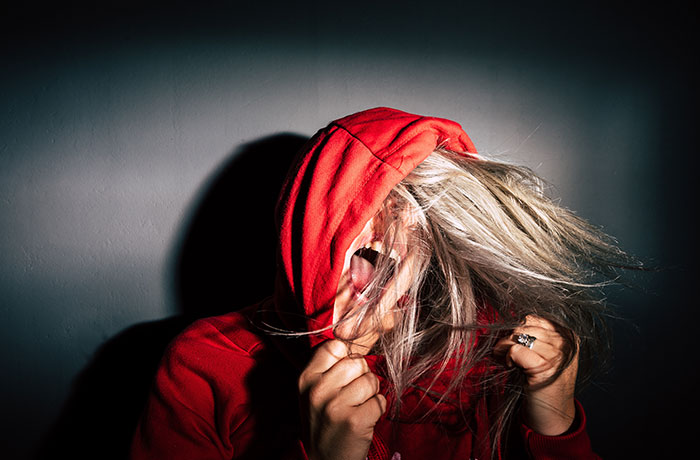 Yes, and when someone says, 'You don’t have to say sorry' and/or gets mad at you for saying sorry, and you get in a loop for saying sorry. Nowadays, it’s a lot better than it was. But whenever I feel bad, I just keep repeating it.
Yes, and when someone says, 'You don’t have to say sorry' and/or gets mad at you for saying sorry, and you get in a loop for saying sorry. Nowadays, it’s a lot better than it was. But whenever I feel bad, I just keep repeating it.
 Cleaning or doing things behind the scenes for my family so they're always happy, life goes smoothly, and my life is serene. The latter isn't the case unfortunately; I'm exhausted and always on edge.
Cleaning or doing things behind the scenes for my family so they're always happy, life goes smoothly, and my life is serene. The latter isn't the case unfortunately; I'm exhausted and always on edge.
I never considered this as a coping mechanism. I do this all the time and I get extremely stressed out when my husband comes home from work early because I didn't have the time to tidy up yet. He never said something about it, neither does he expect me to do all this but now I understand why it's making me so, so, so nervous...
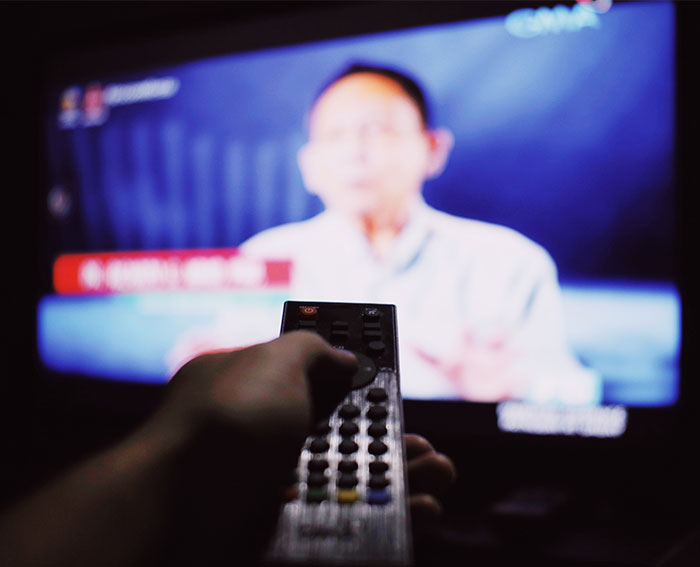 I know that...it's like flipping a switch. It's most noticeable to me when I'm watching a movie and a scene comes on that triggers some kind of memory and so I mentally switch from being in tune with the movie to staring at the box on the wall while the pictures on it move. It completely removes all emotion.
I know that...it's like flipping a switch. It's most noticeable to me when I'm watching a movie and a scene comes on that triggers some kind of memory and so I mentally switch from being in tune with the movie to staring at the box on the wall while the pictures on it move. It completely removes all emotion.
 My dad would get snippy with my sister and me to watch our tone when we wouldn't have one. And then in high school and college, the slightest friggin shift in demeanor of my friends toward me sent me into a damn worry spiral.
My boyfriend likes to speak frankly and clearly, and my mind makes it sound like he's upset, which makes me apologize and actually annoy him since I apologize too much to begin with.
My dad would get snippy with my sister and me to watch our tone when we wouldn't have one. And then in high school and college, the slightest friggin shift in demeanor of my friends toward me sent me into a damn worry spiral.
My boyfriend likes to speak frankly and clearly, and my mind makes it sound like he's upset, which makes me apologize and actually annoy him since I apologize too much to begin with.
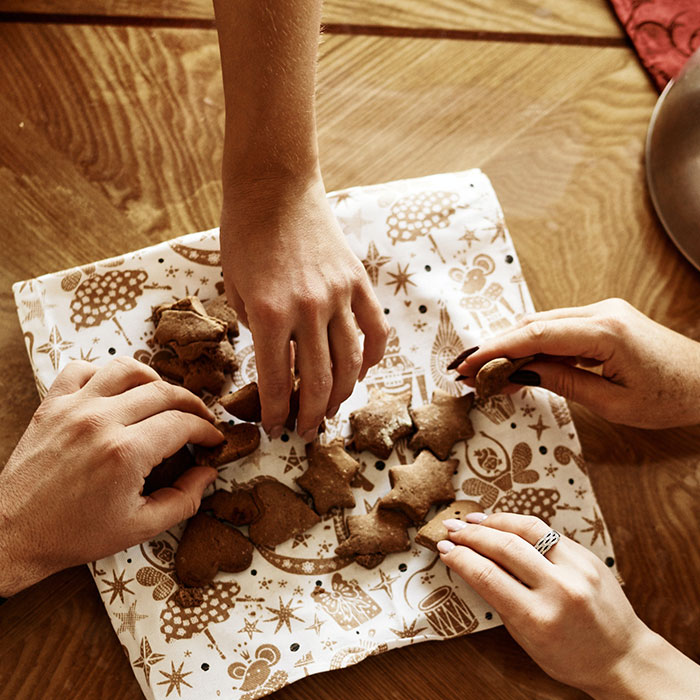 My sister and I both do this. Every minute spent at the table increased the likelihood that we would get yelled at for something unrelated, so the only strategy was to get out of there as quickly as possible. I have to make a conscious effort to slow down around other people now.
My sister and I both do this. Every minute spent at the table increased the likelihood that we would get yelled at for something unrelated, so the only strategy was to get out of there as quickly as possible. I have to make a conscious effort to slow down around other people now.
I do the opposite. Too panicky to eat, I freeze completely and only unfreeze once everybody's done. Even eating alone it takes me a long time.
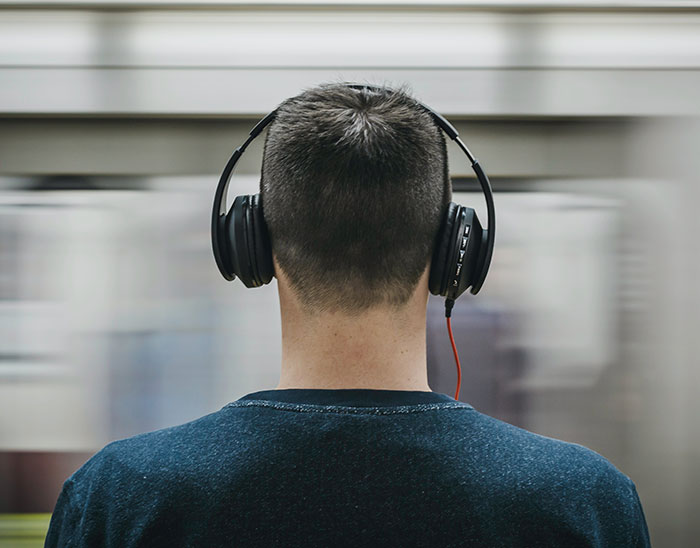 Blocking out all background noise to avoid emotional damage from whatever’s going on.
Blocking out all background noise to avoid emotional damage from whatever’s going on.
I wish more people could just respect others that want to block out the noise. We can still hear sirens and see what's around us.
Defusing is perfectly said. I'd become a doormat just so it didn't escalate to violence. I was 22-23 when I realized throwing s**t across the dinner table/screaming and yelling at every meal wasn't normal. I went to my best friend's house for pizza...on edge the entire time waiting to get hit in the mouth or see a cup fly across the room. Never happened. Perfectly normal family dinner. First one I ever had in my life, just like in the movies. I went to the bathroom and cried a bit. The positive note is that there aren't many people I don't get along with or CAN'T defuse. It's a skill I've become very good at because if you made the wrong move you got your a*s literally beat. It's like 5D chess I never knew I was playing. My father was one of the most manipulative and intelligent people I've ever seen, he'd be 5 steps ahead of you, and lead you exactly where he wanted. Never understood any of it until I went to therapy for years. We could probably have our own TV show. My family was the type that you'd never guess was destructive as f**k. Went to church, never in trouble, good grades, etc. We weren't poor by any means but my house was a f**king warzone looking back. We used to invite friends over so my parents wouldn't fight around guests. I always thought all of it was normal. I haven't seen or spoken to my father since 2016, life is better.
Reading. A LOT. It was my only form of escapism that didn’t get me in trouble with my parents even though I was “the good kid” (who I was constantly walking on eggshells around). I also stashed my snacks and favorite toys around my room bc my brother (who is on the spectrum) was constantly trying to find them and eat/steal them. And most of the time, if I tried being nice and shared a toy or game with him, he would wind up breaking it somehow. So, I hid stuff to preserve it for longer. Which just made him ransack my room all the more. I have issues with coveting my favorite things now bc nothing was sacred.
My parents, I love them to death, they were great parents, but they argued ALOT. Like bad. I’m surprised it never got violent between the two of them. I learned from an early age that I could make a roaring sound in my ears. Didn’t realize until last year(I’m 34), that not everybody can do that. But I learned to make the roaring noise to block out all of the arguing and fighting going on between my mom and dad.
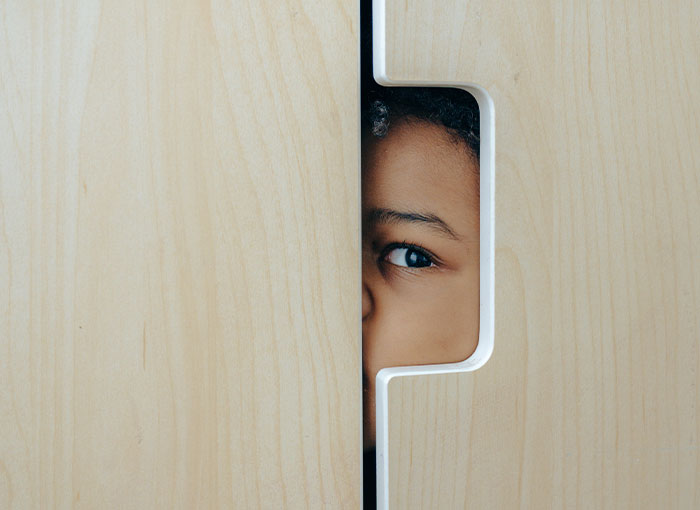 Hiding in the closet.
Hiding in the closet.
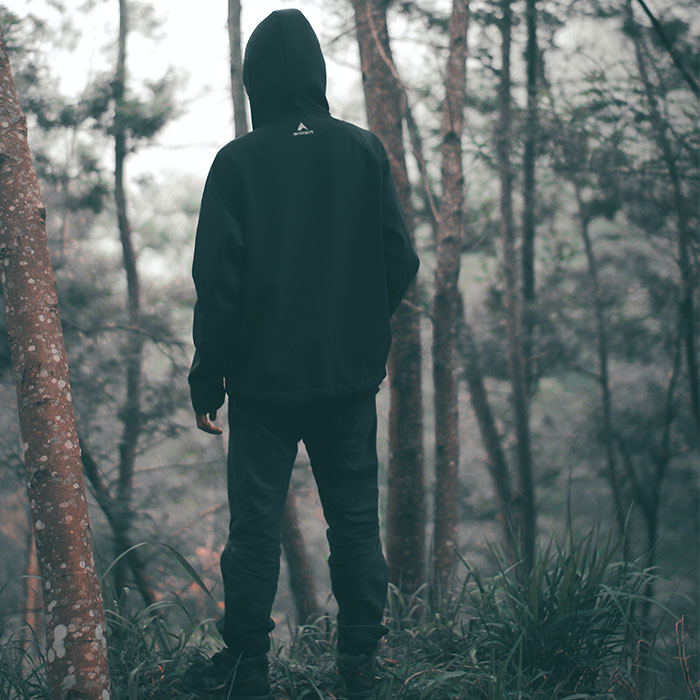 I have PTSD, and I never hid in the closet, but something I think is similar is that I would never go to school without wearing long pants and a hoodie, even though I live in a very humid area that gets up to 100F during parts of the year.
The hoodie always made me feel safe like nothing outside could get to me. One time, I couldn’t find my hoodie, and I was freaking out and breaking down. I felt ashamed to go to school without a hoodie, and that it wasn’t safe.
I have PTSD, and I never hid in the closet, but something I think is similar is that I would never go to school without wearing long pants and a hoodie, even though I live in a very humid area that gets up to 100F during parts of the year.
The hoodie always made me feel safe like nothing outside could get to me. One time, I couldn’t find my hoodie, and I was freaking out and breaking down. I felt ashamed to go to school without a hoodie, and that it wasn’t safe.
I have mild PTSD/trauma from being injured on an oven when I was little. It took me two years to finally be able to use an oven, and I still can't say the word 'burned' out loud. My sibling knows this and jokes around with the hot coils of the oven, and makes fun of me when I have a panic attack from it.
Assume anytime someone in a position of authority wants to talk to me, it's bad news and I've done something wrong (even if I can't remember doing anything potentially bad).
I think most people tend to do that. "The boss wants to talk to you." "OH crap, what have I done now?" It's normal.
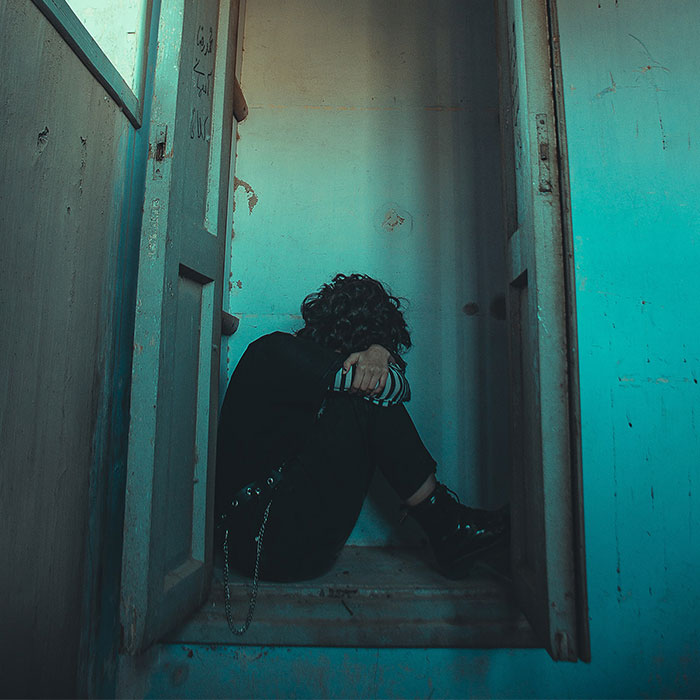 I recently learned about attachment theory and it makes complete sense as to how some children grow up the way they do. My attachment style is avoidant. Those with an avoidant attachment styles are typically people who have never received proper love or care from their parent. Children with avoidant attachment styles start to disregard their own internal struggles and feelings in order to maintain that peace and keep their parents close by. Growing up as a child, I never received that proper love or care from my parents. I did, however, receive that love and care from those who took me in, but the trauma has already been done. I unconsciously grew up to have this attachment style and started to bottle up my emotions and feelings.
I always distanced myself from issues that arose, took criticism as an attack on my ego, never went out of my way to get help to talk about my feelings, and I even had reactive/controlling behavior. I didn’t realize how damaged I was/am, and how I started treating my significant other as well as my friends and family.
I assumed that since I no longer had that feeling of wanting or needing my mother close by that I just had moved on and forgot about it. In reality, I never fully healed from the childhood trauma. In place of that pain was anger/resentment towards my mother which ended up numbing it.
Now that I am fully aware of my attachment style, I am fully motivated to be a better person for myself and those around me. I will learn to stop bottling up my emotions, stop perceiving all criticism as an attack on my ego, and most importantly, fix my reactive/controlling behavior. I will fully heal and recoup from this trauma in time.
I recently learned about attachment theory and it makes complete sense as to how some children grow up the way they do. My attachment style is avoidant. Those with an avoidant attachment styles are typically people who have never received proper love or care from their parent. Children with avoidant attachment styles start to disregard their own internal struggles and feelings in order to maintain that peace and keep their parents close by. Growing up as a child, I never received that proper love or care from my parents. I did, however, receive that love and care from those who took me in, but the trauma has already been done. I unconsciously grew up to have this attachment style and started to bottle up my emotions and feelings.
I always distanced myself from issues that arose, took criticism as an attack on my ego, never went out of my way to get help to talk about my feelings, and I even had reactive/controlling behavior. I didn’t realize how damaged I was/am, and how I started treating my significant other as well as my friends and family.
I assumed that since I no longer had that feeling of wanting or needing my mother close by that I just had moved on and forgot about it. In reality, I never fully healed from the childhood trauma. In place of that pain was anger/resentment towards my mother which ended up numbing it.
Now that I am fully aware of my attachment style, I am fully motivated to be a better person for myself and those around me. I will learn to stop bottling up my emotions, stop perceiving all criticism as an attack on my ego, and most importantly, fix my reactive/controlling behavior. I will fully heal and recoup from this trauma in time.
"Comfort" items, I currently sleep with a tie fleece blanket, comforter, 27lb weighted blanket folded over twice, and five throw blankets, doesn't matter the temperature, they're all on me every night. I have 5 stuffed animals on my nightstand just in case I need them. Hug your kids folks.
Holding my breath when I cry When I was a kid I would get smacked if I made any noise when crying, and the only way I could stop making noise was to not breathe. I have to focus on breathing when I get upset, and now I get headaches when I cry (I also subconsciously tense the roof of my mouth) Idk when I realized it wasn’t normal but for the longest time I thought crying caused headaches.
Wait, crying doesn't cause headaches? IT....IS MY WHOLE LIFE A LIE?!
This is the biggest one for me. If someone is upset and talks for a long period of time, the room literally starts to go black from the outside moving inwards and sounds move far away to where I have to make a conscious effort to snap the hell out of it and be present. It feels so much more physical than mental.
yeah..... yeah this used to happen to me... Wonder if it stemmed from ADD
Escaping into my head. I don't do it much anymore, but as a kid and teen I lived there. I can also walk into a room and sense immediately if something is about to go down, and spot dodgy people on the street from a block away. my wife on the other hand is completely oblivious
I always thought that was normal. Same as always knowing where the exits are, and who not to ask for help when you need it
Constantly daydreaming about a better life that I actually didn’t have the ability to attain.
I just start walking with no destination for hours. 6 hours is kind of normal but it takes something big to get me to do those long walks.
Oh I've done this since I was little, just aimlessly walking around for hours to get away from home
 Mine was food hoarding. I'd sneak food and water into my room for when I had none. I only realized this year that most people don't have stashes of food hidden around the place.
Mine was food hoarding. I'd sneak food and water into my room for when I had none. I only realized this year that most people don't have stashes of food hidden around the place.
I've read about how people who foster abused children have to look out for this sort of behavior if the abuse included the withholding of food, so they can help the kid to un-learn it.
For the same reason, I’m scary good at lying…to the point I will halfway believe the lie myself. It’s not a trait I’m proud of, but it is useful at times…
This is scary when you start doubting the truth to the point you're an awful truth teller. My mom never believes anything I say, even if it's obviously right and common knowledge. It's like she got it in her head early on to never believe anything I say, and never agree with me. I would plead, beg, whine, push and push the truth. She would always be "Yeah right. You just think you're so smart." I could tell her a lie or a half-truth about the same topic and all of a sudden she repeats the same thing I told her earlier that was right. But that wasn't always the case. Sometimes I was so sure of the things I learned at school or on my own and she would challenge me, tell me I'm wrong. It's a severe gaslighting mindfuck. It was less stressful to say something I knew was wrong and be told is wrong, than say a truth and be told is wrong.
I feel like I am extremely aware of others emotions or at least more than other people.
same, but only with crushes. I'm like "omg, when did you guys start dating" because they are both totally crushing on each other
I internalized the feeling that physical affection between parents and children was weird. My parents were great people but we learned early they weren't touchy, huggy people. Then we'd visit my grandmother and be held in place for a hug and kiss that was a 180 from the no-touch zone at home. Now when I see parents holding hands with their kids and hugging and giving cheek kisses I feel like it's weird and gross. My sibling and I CANNOT hug each other. It doesn't take very many times of your parent being annoyed that you want a hug to learn families don't touch each other.
I used to like hugs but the moment i turned into a teen for some reason I stopped any form of physical contact and affection
Dissociation and maladaptive daydreaming (I just learned that's an actual thing with a name).
This resonates. My parents always had a roof over our heads and food "on the table" (we never ate at the table, if we even had one), but that's about it. No going to our extracurriculars, missing so many of our school functions and events. Homework was "do you have homework" which an unmotivated 12 year old is going to say no to every time. Bedtime routine was "alright time for bed, go lay down and turn off the light". Morning routine was either "Get your a*s up and get dressed, go to school", or "y'all missed the bus? Well I'll take y'all when I have to go to work, I don't have to be up early so I won't", or "I don't have to work today so I guess you're not going to school". Summers were wake up whenever, eat whenever, go entertain yourselves, go to bed whenever. And I did the same thing, getting so engrossed in a good book that now you're having to make a conscious decision not to start acting like your favorite character in public, way passed the age when that's acceptable and cute. As an adult, I struggled for a long time forming any sort of routine in my life. Every time I tried it would just fall apart. I needed routines, I craved them, but I just couldn't stick to any of the ones I tried to do. it wasn't until this past August when my son started school, because I did not want him growing up like I did. Now I have a reasonable routine, we all go to bed the same time each night, if I wake up late then I still get my son to school and walk him to the office. I keep in contact with his teacher so we know when and what homework is to be done and make sure he does it. He's in Little League and I haven't missed a single practice. My parents ruined my childhood and my first years as an adult, and what they did will still be there for the rest of my life. But day by day I'm improving, and I'm proud of that.
Hey! As a person who has parents who hovered around so much, I developed a kind of behavior where I want to be good every time and get s**t scared if even one small thing goes wrong and is afraid of my parents even when its not necessary ( I'm sure it wasn't their intension) . Maybe you can still have control but being around all the time especially in school can create the opposite effect you are desiring. Give them some independence it will help them to also need you and feel at ease with you.
One of the neighbours kids constantly lies... Well sort of I started doing some behind the scenes groundwork and figured out she tells compounded White lies that unravel on her constantly. I'm assuming completely because lying is her life raft. Many people have written her off as a pathological liar. Anyway, she moved out of home (16) and now doesn't have bags under her eyes and she actually looks like she has a healthy amount of muscle/fat, whereas before she was stick thin. Her mom makes out that she's not doing that well out of home but she seems happier and has more constructive conversations. Idk about you but something's up when ya kid ditches you that young.
I wish I could have left home at 16...I had to go 2 more years before I even had the chance. (I'm moving on my b-day, which is * very* soon. I cannot wait)
Yeah the hypervigilance- my partner doesn’t have this. He was walking home from training one night, headphones on and (he’s quite tall and muscular so not exactly the guy who you’d choose to mug if you had much going on between your ears so while he might look like a guy you wouldn’t want to fight, the last thing this man would do in that situation is fight actually, he’d be more likely to either hand everything over or run). Anyway these two guys on bikes approached him (he said they looked like teens so he didn’t pay much attention) and kept saying something to him but with the headphones on and tiredness he didn’t quite click why they were telling him to stay still. One of them grabbed his arm and he just shrugged him off and kept walking. Probably looked like a total bada*s. But five seconds later he realised they’d been trying to mug him and almost threw up with nerves. He just hadn’t processed it at the time! While it’s a funny story that he just shrugged off two muggers and kept walking had it been me, I’d have seen them a block away and switched streets. I couldn’t believe he hadn’t seen them coming. It simply just did not occur to him whatsoever. Although adorable, it also completely baffles me!
imagine tryna mug someone but they just are like "no thankyou, i'm busy"
The sad realization that as years go by, your daydreams from the kid you become more and more ridiculous. "When I'm older, I'll invent something really cool so I will have a megacompany and will never have to work again!" Older me: Yeah, working at mcdonalds doesn't seem that bad.
Rejecting others before they reject me. Turns out most people aren't so bad, and the ones that aren't for me just aren't for me.
Not sure if this is a coping mechanism exactly but I used to hit my head against the wall to give myself pain to punish myself for mistakes I made. I felt I needed to do so to atone and move forward or something. It probably wasn't the brightest idea, now I'm low-key scared I could have or did give myself brain damage with how frequently I used to do it.
Cutting, especially shallow cuts to the wrists, are perhaps the most well-known form of self-harm, but certainly not the only one. I used to know a guy who'd burn his arm with a lighter, just like a bad habit. I had two periods in my life where I did compulsive self-harm. One was repeatedly slapping my face (to the point of causing swelling), or punching my stomach repeatedly until I had really awful bruises. It can be really hard to break the self-harm habit.
To this day the garage door and footsteps give me PTSD.
I’m still working on not always jumping to the worst conclusion. I’m getting better at recognizing that I’m doing it at least, but still working on it every day.
Holy cow, this is me. I also work on that. It makes life more difficult than it is
I developed a reflex where I apologize and ask if they are angry at me. I have a hard time telling how people are feeling unless they tell me. Apparently that just ended up with me being the sorryest sack of crap they'd ever seen.
I can too. It's...scary sometimes honestly how easily I can go from "you're the best" to "f**k you for eternity".
Hiding from my mom because I was scared to talk to her at age 20... nor normal to be scared of your mom let alone at age 20. She was so mentally abusive my whole life and it caused so much trauma to me. Still not over it.
I was told by my dad "if you get in trouble at school you'll get in trouble at home". Trouble from him meant he'd be angry, and I'd get a paddling. He even had a paddle. More or lees a two by four with a handle on it and rounded perhaps like a cricket bat. Anyway, I only got in trouble once or twice in school, but you can bet I didn't tell either parent until years if not decades later.
 It's called trichotillomania and it's a body-focused repetitive behavior. I do it, too. It used to be classified as an impulse control disorder, but now it's considered an obsessive compulsive-related disorder.
It's called trichotillomania and it's a body-focused repetitive behavior. I do it, too. It used to be classified as an impulse control disorder, but now it's considered an obsessive compulsive-related disorder.
I think i might have it since i always pinch my eyebrows and lashes
Listening closely to what's going on in my apartment or the people I know around me to hear if anyone is upset or talking about me or yelling or fighting.
Minimizing. “Oh we don’t have food. Oh well, at least I can play this game!” “Oh, we don’t have power… i guess I’ll take the dogs for a walk or go to the library to charge my laptop!” “Oh we don’t have heat? I’ll just bundle up, not a problem!” My therapist told me this probably saved my life, cause if I realized just how bad things were, I might’ve tried to kill myself.
Erm, I’d get a new therapist. This sounds highly inappropriate for them to say.
Disassossiation and memory loss. So much I don’t remember because I checked out.
I used this also. I became so good at disassociation that I could meditate at a very young age. It almost felt like I was another person watching myself. My parents really messed me up in several ways. It took much self harm and loosing my mind before I realized, I'm lucky, I survived. I had to completely cut contact, which brings some guilt also, but finally I'm happy and trying to be a better person than them. I will never understand how people can be so cruel and demented towards their own child.
Similarly, I tend to get stuck wherever I am. I convince myself I'm "content" with the way things are even if I'm unhappy. Even if I express that I'm unhappy I'll still fall back and go "well it's not that bad."
I always described it as living "in here", in my head, as opposed to being physically present. Like I'm here, physically, and I'm interacting. But I'm really inside. I'm really in my head and nothing touches me in here. And bc of that, life passes me by and I watch from in here, not really feeling a part of any of it.
Yes! I'm convinced that I'm incapable of screaming because I had to stay as quiet as possible growing up, and even if I really try it feels like I'm a squeaky toy without a squeaker. I never got any "practice" screaming so I just can't do it now. If something scares me I just gasp quietly.
Same, when “Trick or treating” I never could say the words, just mumble behind the cheap plastic mask that went with the costume. I never found my voice until my 40’s but I still don’t raise my voice. I don’t think I can scream.
Doing a lot of things at once. It was normal for me to have a movie on the TV in my room, music playing, math and English homework laid out on my desk, and a game going on the PC. I'd bounce between all of them and get things done quickly and correctly. Turns out I had pretty severe ADD which went undiagnosed till adulthood. Only got diagnosed when my coping mechanism started failing and the number of things I could focus on kept dropping. Eventually it got to where I had trouble completing work tasks due to wanting to bounce my attention but my brain just couldn't do it anymore.
Dude your describing my experience at life. I put on a podcast and YouTube at the same time for backround, while having a fidget in my hand and doing two homework assignments open in different tabs switching between them. I have never been diagnosed but have a strong suspicion I am ADHD or smth
Apologizing when It's not even my fault or I'm not even involved also thinking everyone is angry at me just because they're quiet.
Extremely relatable. I have to practice every day to be able to talk smoothly with other people. Longer more complex conversations are hard. It sucks having to talk to people you're unfamiliar with cause you have no clue what they're gonna throw at you. I suck at coming up with responses on the spot.
I talk to myself constantly. I’d say I reveal less than 1% of what I’m thinking and effectively limit conversations with other people to the bare minimum but I’m in constant dialogue with myself. My roommate has caught me at it so many times he doesn’t even mention it anymore.
I am really good at doing different accents, and I do different accents when I talk to myself in a certain mood. If I’m angry at a school assignment, it’s British. If I’m mad at myself it’s ussually Australian. If I am narrating something/repeating something it’s Swedish and so onIt’s weird but I talk to myself so much in different accents.
A very good friend of mine is like this. He is the deepest sleeper because he grew up drowning out the sounds of parents fighting.
I'm a really light sleeper because I had to stay on my toes at all times. Bedroom door closed, weighted blanket over just my torso so I could get out quickly. The house was absolutely quiet at night, so I just....didn't ever fall asleep. There were bags under my eyes starting age 10.
Staying up to 4am just to avoid trauma and have room and space and time to breathe without narcissistic abuse. Edit: book that helped me with a general context of my childhood. "ADULT Children of emotionally immature parents."
Food behaviours in general. Took me forever to see this as a product of the abuse. My dad would serve my sister and I adult portions of food and it very often ended with us crying trying to finish remaining portion. We were always told no dessert if we didn't finish so dessert became the reward for pushing past the discomfort from eating too much. He did this with food we didn't like too. We would remind him we didn't like this food or that and he always acted surprised and usually forced us to eat it anyway. Keep in mind we never EVER had foods he didn't like in the house. Fast forward 20ish years and I'm still unpacking that. Quite literally two days ago I'm sitting at the kitchen table eating a lovely meal cooked by my fiancé. I'm starting to lose my appetite and my stomach is uncomfortable. It took me way too long to register that that means IM FULL. Plus he is NOT my dad and I'm not going to get screamed at or guilted for not finishing it. It went in a leftovers container for the next day with nothing other than a conversation about how messed up my dad was. Another day my fiancé was talking about dinner and it took me way to long to be comfortable telling him I wasn't really hungry for dinner right then, that he was free to make himself something and I'd make myself something when I'm hungry. He said "OK my love" and that was that. No yelling. No screaming, no crying. The world didn't end. It continued on with love, compassion and understanding.
I know this, too, and I feel the pressure to finish food or even eat food that I don't like (like trying something new, it's awful, but still it was bought and has to be finished). Apart from being conscious about it, two things helped me: 1) I am an adult and am allowed have dessert or sweets before the main dish. 2) Food doesn't need to go through my stomach to be "thrown" away (in case of dislike or it can't be used as a leftover the other day). 1) was the real game changer.
Wow. Ive been thinking about this a lot lately. As a teenager I would be able to daydream so hard, like 'inception' in class I could watch the teacher moving around and appear to be paying attention. I realised it was not healthy or normal, after a couple of teachers tried to snap me out of it, I must have just sat there with the same dumb look on my face. I hadn't heard a word he had said, even though he was right in front of me. I was worlds away. He was spooked. I grew up with emotional abuse and neglect.
I did this sometimes, but only in gym class. There was this game we would play kinda like basketball but I HATED it so I would stand far enough away that the ball wouldn’t be thrown to me, and I would subconsciously follow wherever the ball was going while being lost in my mind
I may not be as bad as you are saying but I almost always procrastinate everything and always put myself in a lot of stress which I usually can get through but when I do fail or the stress gets to me I completely hate myself. And I mean hate. I just have notes in my phone from when this happens and it’s not good to end up in that state of mind.
Dude I have gotten honour roll two terms in a row and I was .06 away from making in third term and I beat myself up so much. I mean I mutter to myself about how stupid I am and how I’m not worth it and I hate that i do that it’s just so much pressure. (For some reason I don’t do this in math cuz I’m good having a B in that…. Probs cuz it’s the only subject I hate)
Eyebrows and eyelashes here. Reading through all of these responses makes me realize how messed up I really am. Your response makes me realize that I do it out of nervousness.
I'm also realizing that I probably have a mental disorder or something
People pleasing.
My Mom is a HUGE people pleaser. Even though it makes her miserable.
I thought I was the only one who did this. Also daydreaming about people who treated me bad suffering and I overcome in some amazing or grandiose way.
I have this constant disassociation where I'm constantly not paying much attention, I'm just coasting (if that makes sense). Then on rarity my brain goes "hey, you're a living breathing mammal" and all my senses come into focus and I can overwhelmingly, feel and hear, and see s**t. And just at quick as it came, that feeling is gone again and I go back into autopilot mode.
Therapy. This is what the beginning of my 3 year nervous breakdown looked like. If you're having these "break through" emotions please seek out help.
The hardest part for me with this attachment style has been accepting other people’s emotions. I’m so used to pushing mine away as a survival tactic that when others can’t, or don’t, internally I just want to cut them off and never speak to them again. It’s so weird. I’ve been working on it since i found out and therapy has helped me a ton!
Making a joke about or laughing at unacceptable behavior as a means of trivializing rather than confronting the behavior.
I have a cycle of body tics. There’s the incessant finger skin biting. When my father would slap my hands or face to get me to stop, I’d bite off the skin inside my mouth. When he caught me or i tried really hard to stop, I’d unconsciously start pinching myself until I had permanent scars from repeated skin trauma.
My fingers are a disaster and I have to big clumps on each side of my mouth. Big bulbs of bunched dead nerves from 20+ years of biting... hard to whistle now
I do this too and I don’t really know why… People comment on it all the time but I don’t really know how to stop doing it. As soon as I start eating it’s like a black out or something and I don’t come back to reality until the food is gone…
Most likely, your parents fought at the dinner table. Classical conditioning. Dinner table=parents fighting=black out. Eventually, dinner table=black out
Binge eating. my mom is a chef and so is my brother so the food was always good but then living on my own i found myself making meals for 2-3 people but eating it all, then snacks.. i think it was also the “you have to finish your plate” deal too.
The you have to eat everything is the worst thing. LET PEOPLE EAT WHAT THEY CAN HANDLE
Grandma is a hoarder. I only have 1 pot, 1 pan, and 1 set of silverware. I throw out food that’s still good. I keep a minimalist wardrobe. I have a hard time buying things for myself. I also have a hard time “tidying up” because my brain doesn’t compute that things belong their a “place”.
I completely understand this. I have a mini "nest" near my bed with crafting stuff in bins and my brain tells me that's what keeps me safe. Hoping someday I'll progress far enough in therapy to give this habit up but for now I have to let my brain feel comfortable.
I have CPTSD and the closet, or a smaller enclosed space, is just so comforting. When I'm home and I'm talking on the phone, I sit in the closet to do it even though I don't have to and I'm safe.
This is so relatable to me. I’ve always done this for one reason or another. Now a days I work extremely long shifts and find myself placing myself out of my body as much as possible. My home life has gotten bad so I’ve been doing it at home recently too. I feel like the problem with this is i’ve slowly normalized not living my own life to the point where I can work like a robot for 14 hours a day and it doesn’t affect me at all, but I’m never really happy.
When I was severely depressed I imagined what life would be like when things got better and I lived in my pretend future. And I do it now, being a closeted trans boy I imagine how life will be like; like being able to walk around without a shirt cuz hopefully I’ll get top surgery, and growing a beard, and having muscles.
I have been in and out of therapy for a long list of things that I do not want to go into right now. I don't want to seem like I'm trying to compete with others in this thread. However during times that I cannot afford therapy I use some channels on YouTube that offer me some tools to better my mental health. Therapy In A Nutshell is a good resource. There are many others depending on what you struggle with. Good luck everyone
I was 30 when I finally learned that screaming at unexpected noises, or unexpected people behind you, or even jolts during car rides when you're not the one driving, is a symptom of cptsd. Unfortunately, most people either laugh or get angry. Very few people are understanding. It's also definitely not something most people do
I have been in and out of therapy for a long list of things that I do not want to go into right now. I don't want to seem like I'm trying to compete with others in this thread. However during times that I cannot afford therapy I use some channels on YouTube that offer me some tools to better my mental health. Therapy In A Nutshell is a good resource. There are many others depending on what you struggle with. Good luck everyone
I was 30 when I finally learned that screaming at unexpected noises, or unexpected people behind you, or even jolts during car rides when you're not the one driving, is a symptom of cptsd. Unfortunately, most people either laugh or get angry. Very few people are understanding. It's also definitely not something most people do

 Dark Mode
Dark Mode 

 No fees, cancel anytime
No fees, cancel anytime 




